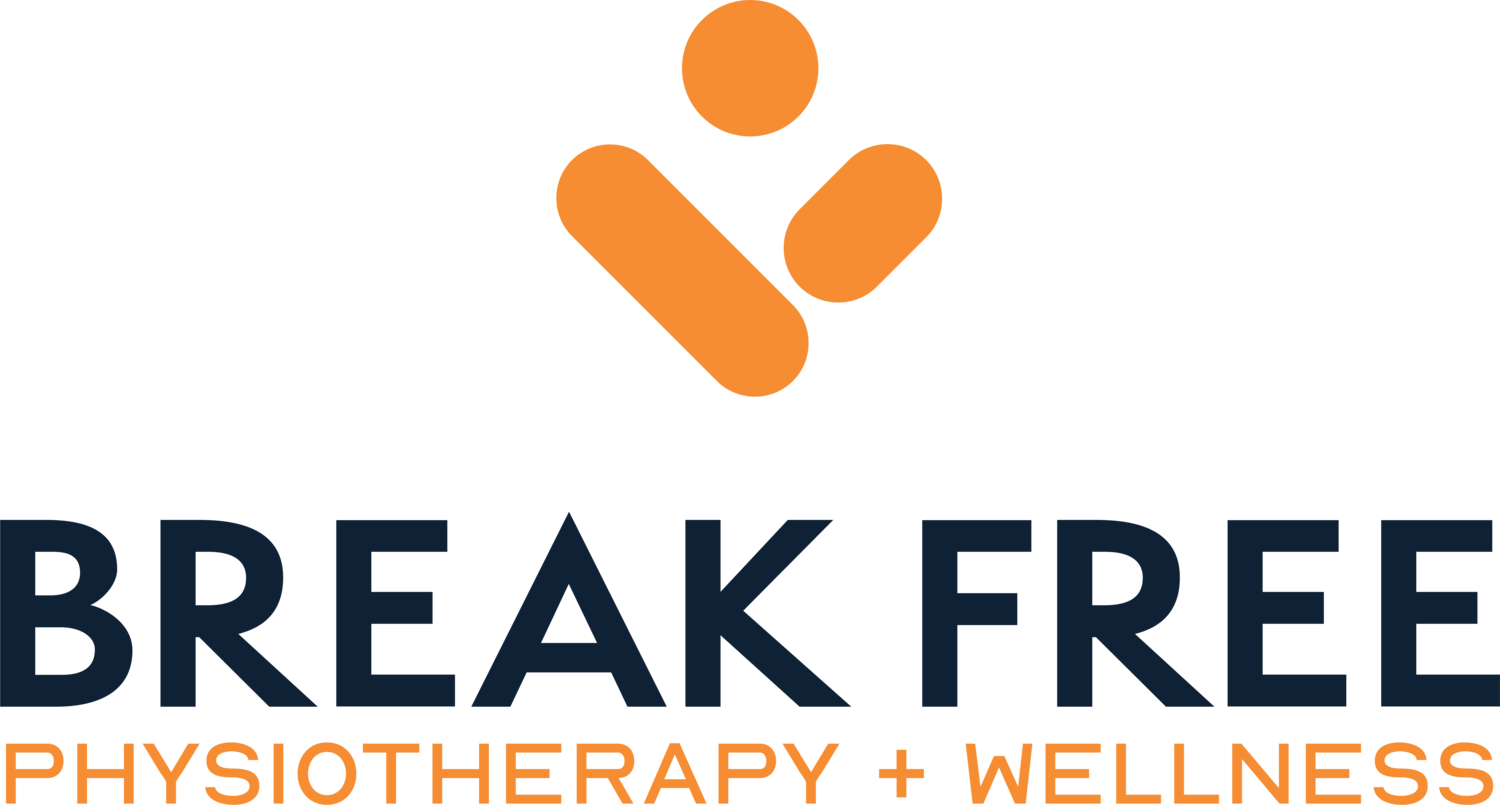Why does my hip hurt?
This is a loaded question! Hip pain is a very common problem we see at Break Free Physiotherapy and there could be multiple reasons why your hip is sore.
Some of the common diagnoses are:
Piriformis syndrome
Gluteal strain
Gluteal tendinopathy
Back pain referring to the hip
Sciatica
IT Band Syndrome
Bursitis
Hip flexor strain
Hip impingement syndrome
Osteoarthritis
Rheumatoid Arthritis
Whoa, now this is a long list, but the most common problem we see in our clinic is back pain referring to the hip. In fact, this research study found that 71% of hip problems come from the lower back. If you’re wondering if this might be you, consider these factors that give you a higher chance to be in this category:
Sitting, bending, turning or static positions make your hip pain worse
Your pain is inconsistent with no clear pattern – it’s hard to reproduce pain with the same activity or movement
When you change your posture in sitting, your pain either gets better or worse
There is tingling or numbness present somewhere down your leg
Your lower back feels tight or stiff and you don’t have flexibility in that area
If this sounds like you, your hip problem may be related to your lower back. If you are unsure and want a second opinion, it’s important to book with a physiotherapist who is skilled at assessing the spine. Our physiotherapists at Break Free have advanced training in screening the lumbar spine. You can book an assessment with one of our therapists here.
One thing I find helpful when trying to figure out the source of hip pain is writing down details of the symptoms experienced. Some questions to consider are:
What makes my hip pain better or worse?
Where is the location of pain and does it move?
Is the pain constant or does it come and go?
With this information, your physiotherapist will be able to find out whether your hip pain is truly coming from your hip area or if it’s from your lower back.
But my back doesn’t hurt, so it can’t be coming from my spine!
This is not entirely true. Even in the absence of back pain, there are many cases where hip weakness and pain can be caused by the lower back. There are some instances where my clients have had an old injury that was forgotten about or not treated. It could have been a slip or fall or an injury that was left to heal on its own. When we delve further into their history and take a quick look with special tests, we can often reproduce and even take away or decrease the pain that my client originally came in for. I’ll always ask if there were any past surgeries or motor vehicle accidents because traumatic incidents will often put stress on your body which can lead to poor adaptation or compensatory patterns. This will eventually lead to bigger problems down the road.
This image depicts nerves travelling from the lumbar spine through the hips, which could be the source of your pain.
But why would the back cause pain in my hip?
There are a series of nerves that travel from your back to your hip. Think of nerves as a super information highway from your brain to the muscles. When there is a traffic jam, like a pinched nerve in your back, it can cause weakness, pain, tingling and/or numbness. But the tricky thing is that it’s not always all four of these symptoms. It can vary person to person.
Could it still be the hip itself?
Absolutely! This isn’t to say that you don’t have a hip problem. Often people develop hip problems overtime because of a back problem. Or is it the other way around? Ah the old “was it the chicken or the egg first” dilemma!
So how do you treat the lower back as a source of hip pain?
It varies based on your spine and what movements produce pain or weakness. Your physiotherapist at Break Free will be able to assess what would work best for your injury. This could include a very specific stretch for your back or hip, a strengthening program, dry needling or acupuncture.
If you’re interested in a full comprehensive assessment with specific exercises tailored to your injury, book an appointment with our physiotherapists today!




